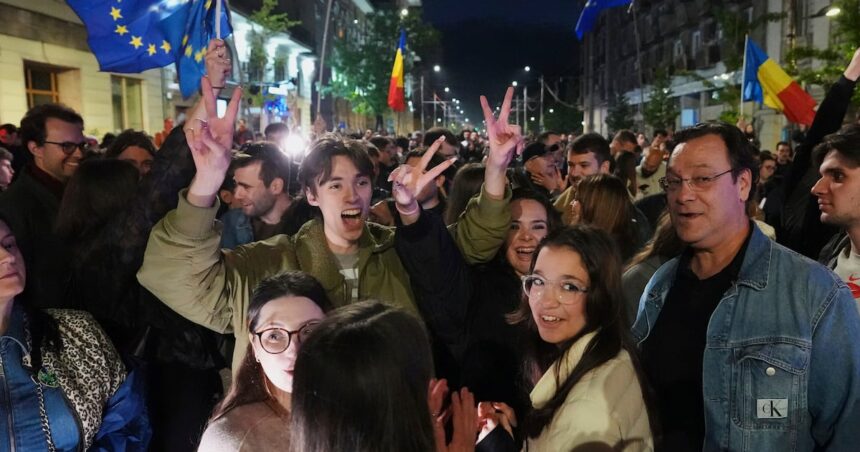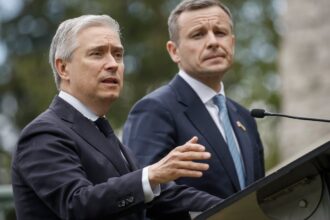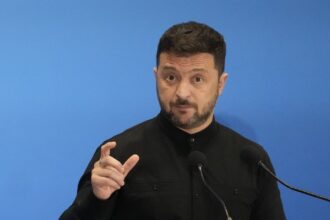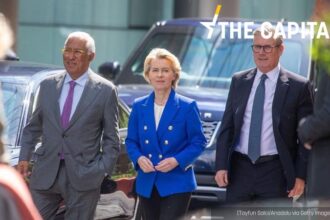In a closely watched electoral contest that could determine Romania’s geopolitical trajectory, centrist candidate Elena Lasconi has emerged with a slight edge in the first round of presidential voting, according to preliminary results released Sunday evening.
The former journalist and mayor turned presidential hopeful secured approximately 26% of the vote, positioning herself ahead of far-right nationalist Călin Georgescu, who garnered roughly 23% in a race that has captivated this strategically important NATO and European Union member nation.
“This result signals that Romanians are ready for genuine change,” Lasconi told supporters at her campaign headquarters in Bucharest. “We have fought against a system that has held our country back for decades, and today marks the first step toward building the Romania we deserve.”
The election comes at a critical juncture for Romania, a country of 19 million that continues to navigate complex relationships with both Western allies and neighboring Russia. Since joining NATO in 2004 and the European Union in 2007, Romania has generally maintained a pro-Western orientation, though internal political turbulence has sometimes complicated this trajectory.
Political analysts point to significant voter frustration with endemic corruption and economic challenges that have persisted despite Romania’s integration into European institutions. The country still ranks among the EU’s poorest members, with approximately 35% of its population at risk of poverty or social exclusion, according to Eurostat data.
“What we’re witnessing is voters expressing their disillusionment with traditional political parties,” explained Adrian Moraru, political scientist at the University of Bucharest. “Lasconi’s appeal stems from her outsider image and anti-corruption platform, while Georgescu has capitalized on nationalist sentiment and economic insecurity.”
The race has been marked by sharp divisions over Romania’s future. Lasconi has campaigned on accelerating European integration, strengthening anti-corruption measures, and modernizing the economy through digital transformation and green initiatives. Meanwhile, Georgescu has promoted a platform emphasizing national sovereignty, traditional values, and economic protectionism.
The electoral contest has taken place against the backdrop of regional instability, with the ongoing conflict in neighboring Ukraine raising security concerns. Romania has emerged as a key logistical hub for Western military and humanitarian assistance to Ukraine, with its Black Sea ports playing a critical role.
Prime Minister Marcel Ciolacu, who finished third with approximately 20% of the vote according to preliminary results, conceded defeat but emphasized the importance of maintaining Romania’s Western orientation. “While I accept the voters’ decision, I urge Romanians to remember that our security and prosperity depend on our European and transatlantic partnerships,” Ciolacu stated at a press conference.
The election featured nine candidates, with the top two finishers advancing to a December 8 runoff. Voter turnout reached approximately 52%, slightly higher than in previous presidential elections, reflecting increased public engagement in this highly consequential race.
International observers from the Organization for Security and Co-operation in Europe reported that the election was “generally well-administered,” though they noted concerns about “inflammatory rhetoric and disinformation” during the campaign period.
The next president will face significant challenges, including navigating geopolitical pressures, addressing economic inequality, stemming population decline through emigration, and strengthening democratic institutions. Romania’s presidential office wields considerable influence over foreign policy, national security, and judicial appointments.
As Romania prepares for the second-round showdown between contrasting visions for its future, a fundamental question emerges: will the country deepen its embrace of European integration and democratic reforms, or will it pivot toward a more nationalist and inward-looking approach that could potentially alter Romania’s position within the European community?










